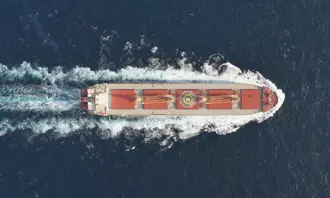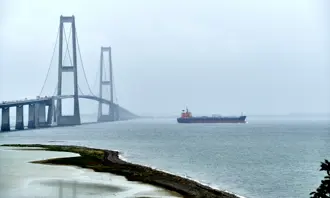Taxation and regulatory framework
The framework conditions need to be competitive both within and outside of Europe. It only takes a few strokes of a pen for shipping companies to move their production facilities - the ships - to other countries. To maintain activities and investments based in Denmark, it is crucial that the framework conditions match those of global competitors within and outside the EU.
Other competitors are also continuously developing their framework conditions, so we must actively work to ensure that Denmark's competitiveness in the maritime sector remains intact.
The Danish International Ship Register (DIS)
The Danish International Ship Register (DIS) means that wage costs, one of the few variable costs between different flags, are not taxed in Denmark. The DIS scheme is crucial to securing employment for Danish seafarers and ensuring the competitiveness of the Danish flag.
The main arguments for maintaining the scheme are:
Loss of essential maritime competencies
Without the DIS scheme, Denmark would be drained of maritime competencies, as shipping companies would not be able to recruit Danish seafarers in the long term. The DIS scheme is an investment in Danish know-how, benefiting the entire maritime cluster. Today, Denmark has the world’s 7th largest maritime industry, with more than 100,000 employed in the maritime sector.
Loss of Denmark's leading position in maritime affairs
Without the DIS scheme, the Danish flag would not be competitive with other countries, such as Norway, Germany, and Singapore, and Denmark would lose its leading global position, built over decades. This would reduce influence on global maritime regulation, where Denmark today is a key agenda-setter alongside other major quality registers.
Danish-flagged ships are important strategic resources
A large Danish shipping industry with headquarters in Denmark, maritime know-how, and Danish-flagged ships with Danish seafarers are important strategic resources. In a time when the Danish military and our allies have, and may continue to have, specific logistical needs and security requirements, this becomes particularly valuable.
International taxation - tonnage tax
Denmark introduced the tonnage tax scheme in 2002. The tonnage tax scheme is now a European standard, implemented in most member states and supported by the European Commission through the maritime state aid guidelines. The scheme or similar regulations also apply in leading maritime nations outside the EU.
The main arguments for maintaining the scheme are:
The tonnage tax is a global standard
The tonnage tax is a global standard that the competitors of Danish shipping companies are also subject to—whether they come from neighboring countries like Norway, the United Kingdom, and Germany, or from Singapore, Japan, Dubai, or the United States. Danish shipping companies operate globally and face fierce competition with companies worldwide, so the regulatory framework must be comparable to that of other shipping companies. More than 95 percent of the industry's revenue is generated far beyond Denmark’s borders, and ships can easily and quickly shift their base and anchor headquarters in neighboring countries. To remain competitive with other major maritime nations, we must have comparable conditions.
Shipping companies are essential for a strong maritime cluster
The fleet under the Danish flag has never been larger, and shipping is Denmark’s largest export industry, with annual exports exceeding DKK 520 billion. In total, around 100,000 people work in the maritime cluster, and wages for employees in shipping are about 30% higher than for other employees in Denmark.


